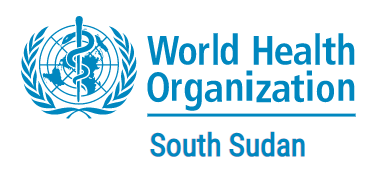The cholera outbreak in South Sudan, which the government declared in October 2024, continues to worsen. Around 21 000 suspected and confirmed cases and around 367 deaths have been reported so far as of 15 January 2025, with more than a quarter of these reported in the last week of December. The case fatality ratio is currently 1.8%, which exceeds World Health Organization (WHO)’s target threshold of less than 1%.
While cholera cases have been reported in 31 out of 80 counties across seven states and one administrative area, Rubkona county accounts for 47% of total cases, followed by Juba county at around 10%. The ongoing influx of refugees and returnees fleeing the conflict in Sudan increases the risk of infectious disease outbreaks like cholera and continues to exert pressure on an already fragile health system. Renk county, the primary entry point for most of the returnees and refugees from Sudan, has reported around 550 confirmed and suspected cholera cases and three deaths. This accounts for almost 4% of the total cholera cases reported nationwide.
To address the rising cases of cholera, the Ministry of Health, with support from WHO and partners , in January 2025 rolled out several oral cholera vaccination campaigns in four high-risk counties – Malakal, Juba, Renk and, Rubkona. With support from Gavi, the Vaccine Alliance, around 4 million doses of the vaccine have been approved and around 910 000 doses have so far been administered in the four counties, above 90% coverage.
“We extend our heartfelt gratitude to our healthcare workers on the frontlines, who are dedicated to caring for cholera patients and curbing the transmission,” says Minister of Health, Hon Yolanda Awel Deng. “The vaccine is lifesaving, and I encourage the community to get vaccinated and adhere to all precautionary measures to minimize the risk of contracting cholera.”
WHO continues to distribute essential medical supplies for cholera response to local and national health authorities and partners. These include investigation and treatment kits, cholera beds, standalone rapid diagnostic tests and personal protective equipment to enhance cholera preparedness and response efforts. The supplies can treat 4700 cholera cases.
“While oral cholera vaccination is important, it is one of several tools to curb the ongoing outbreak,” says Dr Humphrey Karamagi, WHO Representative in South Sudan, “WHO is supporting health authorities in all aspects of the outbreak response to ensure that we address comprehensive health needs and bring this outbreak to an end.”
WHO has facilitated the establishment of a 50-bed cholera treatment centre at Juba Teaching Hospital and is supporting the deployment of nine rapid response teams from national level to 11 priority counties to support implementing partners on the ground provide critical case management.
Gai and her family have since fully recovered and have been vaccinated. “I sincerely thank all the health workers and authorities for their care,” she says. “The support has been invaluable during this difficult time for my family, and we are grateful. Now we have been vaccinated and no longer worried.”
World Health Organization (WHO) – South Sudan.







OTHER ARTICLES
Editorial — Prevent, inform, and act for women’s health in Africa
Kenya : Government Prioritises Maternal Health and Strengthens Support for Community Health Promoters
Strengthening pandemic prevention, preparedness, and response capacities in Senegal using the “One Health” approach